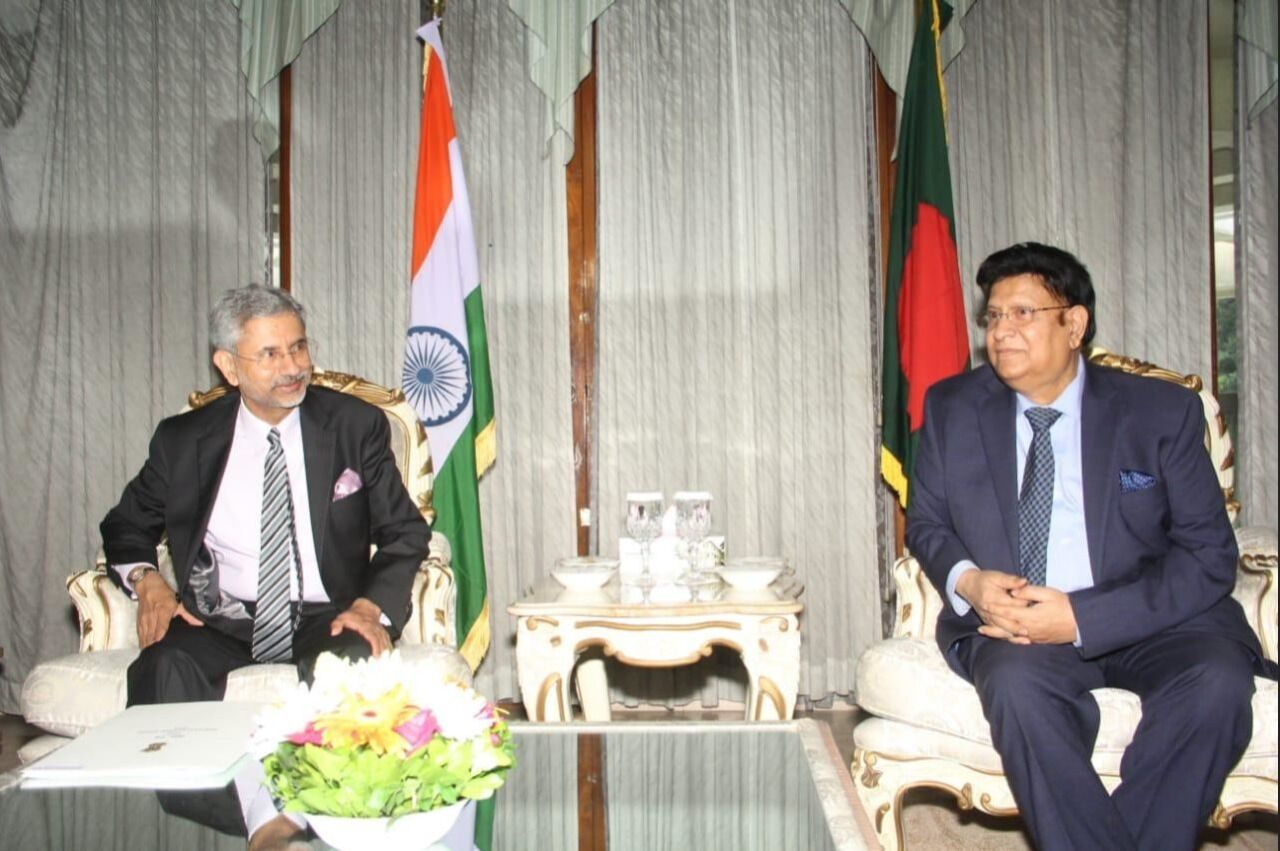Thawing relations
External Affairs Minister’s recent Dhaka trip has laid the groundwork for Sheikh Hasina’s potential visit to India but has also created dissatisfaction among detractors

India and Bangladesh are steadily forging ahead with warm relations. An instance which reaffirms this argument is India's External Affairs Minister (EAM) S Jaishankar's recent visit to Dhaka where he delivered a personal message on behalf of the Indian Prime Minister Narendra Modi to Bangladeshi Prime Minister Sheikh Hasina. The visiting Indian EAM also held informal talks with the host Prime Minister as well as with the Foreign Minister. This visit is significant as PM Modi is believed to have extended an invitation to Sheikh Hasina to visit India in the near future. It is likely that soon, the date of the visit will be announced, leading to a flurry of diplomatic activities and setting up of a structured agenda for the bilateral talks.
In India's immediate neighborhood, Bangladesh is rightly perceived as the staunchest friend of India. Although there remain numerous unresolved issues between the two countries, both are sincerely committed to reinforce mutual ties. The strengthened relations between the two countries have been highlighted time and again by Hasina and her other party leaders. India has also been often resonating about the firm bilateral relations. Amid these developments, the Bangladeshi Foreign Minister AK Abdul Momen disclosed having sought India's assistance in lifting sanctions against the Bangladesh elite force, Rapid Action Battalion (RAB), which is under the scanner of the US for allegedly being involved in violation of human rights in Bangladesh, causing disappearances and "encounters". The US has also cancelled visas of seven RAB officials.
While on one hand, BD Foreign Minister's trust and confidence in the Indian dispensation is indicative of strong existing bilateral ties, his statement, on the other hand, has not augured well within a section of the Bangladesh watchers who feel that the bilateral ties are on a firm footing but reflect 'below-dignity' status and misuse of 'good neighbourly relations.' Further criticising the Foreign Minister, a prominent BD newspaper, The Daily Star, in a commentary on April 28, termed the statement as demeaning and castigated the BD FM for having met the members of the Indian American community (US citizens of Indian origin) which comprises 4.5 million Hindus. It is a very influential group and has assured the FM to take up the issue with the US to lift the sanctions. Basically, the Daily Star and others of similar thoughts took umbrage for leaving out Muslims from being a part of the Indian diaspora. This act, according to such BD watchers, reflects a weak mindset, rendering Bangladesh incapable of dealing with the US without India's help. In the same vein, BD Foreign Ministry came under blistering attack for an ambiguous foreign policy which contradicts Hasina's repeated pleas to walk tall with head high and pride. This emotional ire came to the fore by the critics as Bangladesh is in its 51st year of Independence. They have argued that any 'submission' to India may perhaps compromise with Bangladesh's dignity, and cautioned the PM for not exceeding any red line.
These developments also demonstrate that there are occasional irritants who would always try to act as watchdogs and sensitise the BD PM while dealing with India. Ironically, little do they understand that India is the only committed friend of Bangladesh and bailing out RAB out of the shadow of US sanctions is a reality-based diplomacy; there is nothing wrong in it. It is only notional that the Indian diaspora is used to help Bangladesh. Indians, at large, will be more than happy to help a friendly country like Bangladesh. Such needling needs to be ignored by both the countries and, instead, they should move forward to ensure that any distraction doesn't derail the already cemented relations between the two.
Against this backdrop, Sheikh Hasina's upcoming visit to New Delhi is expected to lay fresh emphases to the bonding. It is noteworthy that Bangladesh will go to polls late next year and the political temperature is likely to be very high in the run up to this important event. A good relationship with India will signal Bangladesh's firm commitment. Both the countries owe to each other not only out of diplomatic necessity, but also out of moral commitment to each other.
Reverting back to EAM's Dhaka visit, it may be emphasised that the minister pointed out that Bangladesh features as the most important country in the India's foreign policy objective of "Neighbourhood First". Bangladesh and India have been maintaining an excellent relationship even during the pandemic when the whole world came to a standstill. Jaishankar also appreciated Bangladesh for the transformative socio-economic development under the dynamic leadership of Prime Minister Sheikh Hasina. He further emphasised on promoting trade, commerce and connectivity — especially in the light of supply chain disruptions resulting from Covid-19 restrictions and recent conflict in Ukraine. He assured of India's cooperation in resolving some of the concerns of Bangladesh including the early repatriation of forcibly displaced Myanmar nationals to their country of origin. Such articulations will form the core of the structured agenda, taking Indo-BD ties to new heights during the summit of both the Prime Ministers.
The writer is a retired IPS officer, a security analyst and a former National Security Advisor to the PM of Mauritius. Views expressed are personal



